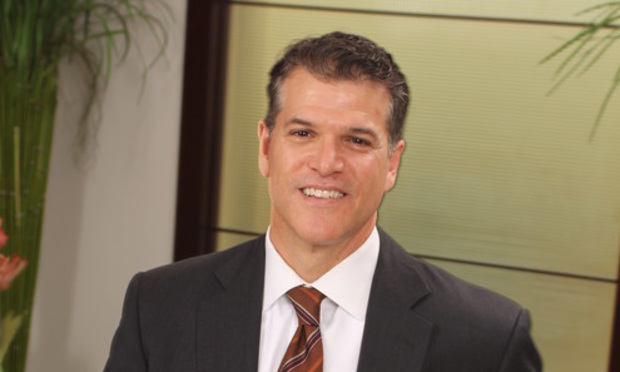South Florida Fails to Make a Splash With Big Corporate Relocations
Amazon HQ2 isn't coming to South Florida. Hertz went to southwest Florida. And Spirit Airlines is moving its operations control center to Tennessee, although it's keeping its headquarters here. Will South Florida ever see a big corporate move?
February 24, 2020 at 05:00 AM
7 minute read
 Joe Hernandez of Weiss Serota Helfman Cole & Bierman. Courtesy photo
Joe Hernandez of Weiss Serota Helfman Cole & Bierman. Courtesy photo
South Florida's year-round warm weather and lack of state income tax aren't enough to lure big corporate moves that take up large square footage and bring thousands of employees.
"I don't see as many headlines as I see in Houston or in Dallas of companies picking up 10,000 employees and moving them there," said Christos Costandinides, director of market analytics for CoStar Group in Miami.
The most obvious example is the lost competition for Amazon HQ2, which didn't go well for New York when it won. Regional boosters expected a $5 billion construction investment in an 8 million-square-foot facility adding 50,000 workers. In the latest shift, long-time South Florida corporate tenant Spirit Airlines announced it would move its operations center and 240 jobs to the Nashville area while keeping its new headquarters in Dania Beach with fewer employees than originally planned.
For now, South Florida will have to settle for expansion of existing companies and small-scale relocations. The region has proved popular with financial service, accounting and insurance firms, which come with a small footprint and headcount.
"A lot of little ones can add up, but nothing that's really, 'Wow! That moves the needle,' " said JLL managing director Matthew Cheezem in Miami. " Even outside of HQ2, Amazon took an entire building, a few hundred thousand square feet in downtown Nashville, Tennessee. Hertz went to Florida's West Coast. These are thousand-plus employers making huge investments in those local economies and driving job growth in those local markets. We still haven't seen that, and that would move the needle for us. We've seen a ton of 50-employee-and-under companies come in but nothing in a scale that really makes a huge difference."
Miami-Dade and Broward counties last year drew plenty of 3,000-10,000-square-foot companies, which accounted for most of the office absorption, according to Colliers International data. Miami-Dade posted a positive 500,000-square-foot absorption last year, but Broward and Palm Beach counties closed the fourth quarter with negative absorption at 172,860 square feet in Broward and 182,514 in Palm Beach.
"We definitely have room to grow," said attorney Joseph Hernandez, who leads the real estate practice at Weiss Serota Helfman Cole & Bierman in Coral Gables.
It's not all bad news as over 70 financial firms moved to Palm Beach County in the last three years and the Broward financial service sector last year experienced the biggest employment growth at 3.7%, data shows. Broward still saw some big expansion, notably human resource software maker Ultimate Software Inc. growing beyond its Weston base into a three-story, 100,000-square-foot building at Sunrise's Sawgrass International Corporate Park.
One Colliers expert acknowledges Miami hasn't lured big corporate relocations but says it's not that type of town. Big back-office operations in Florida are more likely to go to lower-cost alternatives such as Tampa and Jacksonville. Miami is more of a place for front-office operations that come with highly skilled employees.
 Ken Krasnow.
Ken Krasnow."I don't know that our market is a pure comparable to Atlanta or Charlotte where it's a corporate relocation" town, said Ken Krasnow, vice chairman of institutional investor services at Colliers in Miami. "But I do think we are going to start to see the big-name companies making much more significant presences in our market. Whether that's a financial services institution like a JPMorgan or whether that's a Google, you'll start to see significant divisions or operating subsidiaries of those kinds of companies making commitments to our market."
Affordability
The affordable housing crisis, lack of tax incentives and the homogeneity of industries are some of the factors that could be stopping us from getting the likes of Amazon.
"If you look at our housing market, our apartment rents are higher, our cost of living is significantly higher" than other areas, Costandinides said. "People would need to pay higher salaries. We do not provide tax incentives for people to come here to bring their companies here. So when you look at it from a cost angle, if you have a large number of employees, we are probably losing out on that."
South Florida is accustomed to high-end condos and apartments that few can afford yet drive up the housing price for everyone. At the same time, income increases don't keep up with housing costs.
"There's plenty of demand by all sectors, but we tend to see developers developing things in areas that make products more attractive to usually more young urban professionals and more higher income markets," Hernandez said. "When you have a lot of that in your market, obviously they are going for higher rents. So when you look at the overall market statistics, yes it's going to skew up the rent number, and when you compare that to median income and the growth of the two, you can get results like what we have seen."
Then again, it could be factors other than affordability. Amazon decided to split its HQ2 between Arlington, Virginia and New York, despite high cost in both markets.
"I was in New York for a while. It's very expensive up there. And it would be extremely expensive for folks who work at Amazon to live up there," Hernandez said. "It turns out that the things that might have kept us from getting Amazon didn't necessarily keep New York from getting it."
Amazon ultimately pulled out of its New York plan following opposition from residents and local leaders.
Future
Krasnow expects movement soon.
"It's next. We will start to see some real change in the next 12 to 24 months. We are right there. We are right on the cusp," Krasnow said.
Miami office space is relatively cheaper than some other big cities, which companies notice.
Take the 56-story 830 Brickell tower underway in Miami's Brickell Financial District, where asking rents reached $73 a square foot, according to JLL. The average is $200 a square foot in New York and San Francisco, Krasnow said.
It's "relatively a bargain. It's expensive in our market, but it's all perspective," he said. South Florida "will be cost-effective for some of these companies relatively speaking to what they are operating in these other markets. That's all new. It's a transformation of the market as we are speaking. When we really have all the pieces in place that could attract these types of companies, then we will start to see real movement."
Beyond getting the high-end office buildings, South Florida is urbanizing to offer the live-work-play lifestyle coveted by employees. The city also is growing its art and culture offerings.
South Florida long has been a tourism, trade, real estate and service-driven economy, but Hernandez said more industry diversity is needed to appeal to corporations. He doesn't see real competitive change for at least another 10 years.
"One of the things that has been said about Miami is that we are growing into a world city. We are not quite there yet and comparable to New York or LA or London, but we are headed in that direction," he said. "That's what's exciting about the future of our city and the way it's growing. If we do this right, we may get there."
This content has been archived. It is available through our partners, LexisNexis® and Bloomberg Law.
To view this content, please continue to their sites.
Not a Lexis Subscriber?
Subscribe Now
Not a Bloomberg Law Subscriber?
Subscribe Now
NOT FOR REPRINT
© 2025 ALM Global, LLC, All Rights Reserved. Request academic re-use from www.copyright.com. All other uses, submit a request to [email protected]. For more information visit Asset & Logo Licensing.
You Might Like
View All
Fowler White Burnett Opens Jacksonville Office Focused on Transportation Practice
3 minute read
How Much Coverage Do You Really Have? Valuation and Loss Settlement Provisions in Commercial Property Policies
10 minute read
The Importance of 'Speaking Up' Regarding Lease Renewal Deadlines for Commercial Tenants and Landlords
6 minute read
Meet the Attorneys—and Little Known Law—Behind $20M Miami Dispute
Law Firms Mentioned
Trending Stories
- 1We the People?
- 2New York-Based Skadden Team Joins White & Case Group in Mexico City for Citigroup Demerger
- 3No Two Wildfires Alike: Lawyers Take Different Legal Strategies in California
- 4Poop-Themed Dog Toy OK as Parody, but Still Tarnished Jack Daniel’s Brand, Court Says
- 5Meet the New President of NY's Association of Trial Court Jurists
Who Got The Work
J. Brugh Lower of Gibbons has entered an appearance for industrial equipment supplier Devco Corporation in a pending trademark infringement lawsuit. The suit, accusing the defendant of selling knock-off Graco products, was filed Dec. 18 in New Jersey District Court by Rivkin Radler on behalf of Graco Inc. and Graco Minnesota. The case, assigned to U.S. District Judge Zahid N. Quraishi, is 3:24-cv-11294, Graco Inc. et al v. Devco Corporation.
Who Got The Work
Rebecca Maller-Stein and Kent A. Yalowitz of Arnold & Porter Kaye Scholer have entered their appearances for Hanaco Venture Capital and its executives, Lior Prosor and David Frankel, in a pending securities lawsuit. The action, filed on Dec. 24 in New York Southern District Court by Zell, Aron & Co. on behalf of Goldeneye Advisors, accuses the defendants of negligently and fraudulently managing the plaintiff's $1 million investment. The case, assigned to U.S. District Judge Vernon S. Broderick, is 1:24-cv-09918, Goldeneye Advisors, LLC v. Hanaco Venture Capital, Ltd. et al.
Who Got The Work
Attorneys from A&O Shearman has stepped in as defense counsel for Toronto-Dominion Bank and other defendants in a pending securities class action. The suit, filed Dec. 11 in New York Southern District Court by Bleichmar Fonti & Auld, accuses the defendants of concealing the bank's 'pervasive' deficiencies in regards to its compliance with the Bank Secrecy Act and the quality of its anti-money laundering controls. The case, assigned to U.S. District Judge Arun Subramanian, is 1:24-cv-09445, Gonzalez v. The Toronto-Dominion Bank et al.
Who Got The Work
Crown Castle International, a Pennsylvania company providing shared communications infrastructure, has turned to Luke D. Wolf of Gordon Rees Scully Mansukhani to fend off a pending breach-of-contract lawsuit. The court action, filed Nov. 25 in Michigan Eastern District Court by Hooper Hathaway PC on behalf of The Town Residences LLC, accuses Crown Castle of failing to transfer approximately $30,000 in utility payments from T-Mobile in breach of a roof-top lease and assignment agreement. The case, assigned to U.S. District Judge Susan K. Declercq, is 2:24-cv-13131, The Town Residences LLC v. T-Mobile US, Inc. et al.
Who Got The Work
Wilfred P. Coronato and Daniel M. Schwartz of McCarter & English have stepped in as defense counsel to Electrolux Home Products Inc. in a pending product liability lawsuit. The court action, filed Nov. 26 in New York Eastern District Court by Poulos Lopiccolo PC and Nagel Rice LLP on behalf of David Stern, alleges that the defendant's refrigerators’ drawers and shelving repeatedly break and fall apart within months after purchase. The case, assigned to U.S. District Judge Joan M. Azrack, is 2:24-cv-08204, Stern v. Electrolux Home Products, Inc.
Featured Firms
Law Offices of Gary Martin Hays & Associates, P.C.
(470) 294-1674
Law Offices of Mark E. Salomone
(857) 444-6468
Smith & Hassler
(713) 739-1250






